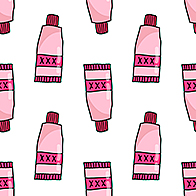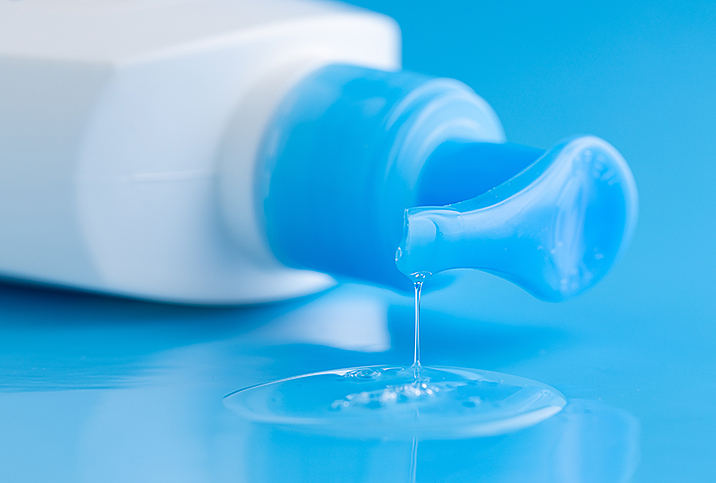The Side Effects of Lube on the Vagina

Vaginal health is an important women’s health topic—one that can’t be overemphasized—and hygiene products are a big part of that topic. While we can talk all day about pure-cotton tampons and pH-balancing cleansers, it’s time to get real about lube.
Lubricant can be water-, silicone- or oil-based. It can be flavored, self-heating and tingling. So how do you pick the right one for your needs?
We can’t give you the name of what’s perfect for you, but if you pay attention to the following red flags, you’ll be well on your way to finding your lube.
What are the side effects using lube causes?
One of the most common side effects of many vaginal lubricants is itching and irritation. This happens because the vagina recognizes lubricant as a foreign substance and tries to expel it using defense mechanisms such as itching and an increase in discharge. Justifiably, your immediate reaction might be to wash your genital area to remove the substance, but that’s generally not going to be the sexiest move you can make in the bedroom.
Pay close attention to how your body responds to each lubricant.
To avoid this situation, find the right lubricant for your body, which might mean trying a few brands before you discover one that works best for you. If you think your lubricant is causing vaginal irritation, look at the label; avoid ingredients such as glycerin, fragrances and flavors.
As an added precaution, wash your vagina with a pH-balanced, fragrance-free cleanser or wipe immediately following sex to remove excess lube.
Allergic reactions
If you experience excessive itching, redness, raised bumps or increased discharge, you may be allergic to a common lubricant ingredient.
The most common allergic reactions occur with silicone-based lubricants because of their synthetic components. Silicone lube is popular because it lasts longer, but the extended use also means longer exposure to your delicate skin. For this reason, most manufacturers of silicone lubricant recommend washing it off immediately after intercourse.
If you have sensitive skin or allergic reactions, try a hypoallergenic, water-based lube rather than a long-lasting one. The same advice applies if you have a skin condition such as eczema or psoriasis.
Can lube cause yeast infections?
Another health concern when using lubricants is the increased chance of developing a yeast infection. If you have tried multiple lubricant brands and still experience itching and irritation, you may have a yeast infection caused by the glycerin in your lubricant.
Glycerin can cause an overgrowth of the bacteria Candida, which is the root cause of yeast infections. While the presence of glycerin is not a guarantee that you’ll develop a yeast infection, women who are prone to yeast infections should choose a glycerin-free lubricant.
Temporary decrease in fertility
One of the lesser known impacts of vaginal lubricant is that it can have a temporary negative effect on fertility. This occurs because many lubricants include a spermicide, a contraceptive substance that destroys sperm. Some of the most popular lubricant brands, such as KY Jelly, Astroglide and Replens, can actually reduce the life span of sperm, which in turn reduces the chance of fertilization and egg implantation.
While the specific reasons for this occurrence are unclear, it is important to read lubricant labels carefully and research your brand, because it may be a factor in preventing conception.
Alternatives to vaginal lube
While lubricant can make sex more enjoyable and prevent irritation, many other products can help if you’re experiencing vaginal dryness.
Some moisturizers address vaginal dryness long before you get into the bedroom, which could eliminate the need for lube altogether. As you’re evaluating your options, remember to choose a brand that supports a healthy pH balance and is fragrance free, to prevent irritation.
If you find you still need a lubricant, coconut oil is a natural choice that will not negatively affect your vaginal health.
Choose the right lube
Paying close attention to how your body responds to each lubricant is the most important factor in choosing which one to use. Don’t believe that the more expensive the brand, the less likely it will irritate your sensitive skin.
Regardless of which brand you end up selecting, you have to admit that testing the different lubricants might be one of the most fun jobs you’ll ever have.




















